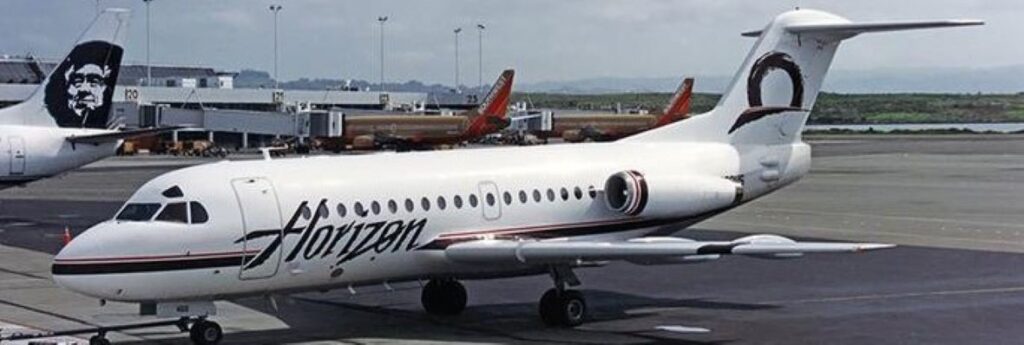An off-duty Alaska Airlines pilot who tried to cut the engines on a Horizon Air regional jet midflight told police after his arrest that he believed he was having a nervous breakdown, thought he was dreaming when he pulled fire handles in the cockpit, and that he had experimented with psychedelic mushrooms recently as his mental health worsened, according to a federal complaint made public Tuesday.
It was not immediately clear from the court document if 44-year-old Joseph David Emerson was high on mushrooms when he was on the plane, but an FBI agent wrote in a probable cause affidavit that the pilot spoke with police about the use of psychedelic mushrooms and “said it was his first-time taking mushrooms.”
The man was subdued by the crew, a pilot flying the plane told air traffic controllers, on the San Francisco-bound flight, which was diverted to Portland, Oregon, where authorities charged him with 83 counts each of attempted murder and reckless endangerment and one count of endangering an aircraft.
Seattle-based Alaska Airlines, which owns Horizon, did not name Emerson, but said that the threat was posed by one of its pilots who was off duty but authorized to occupy the cockpit jump seat.
The airline said in a statement that the captain and co-pilot “quickly responded, engine power was not lost, and the crew secured the aircraft without incident.” Alaska said no weapons were involved.
One of the pilots told air traffic controllers that the man who posed the threat had been removed from the cockpit and was in handcuffs in the back of the plane.
“We’ve got the guy that tried to shut the engines down out of the cockpit. And he doesn’t sound like he’s causing any issue in the back right now, and I think he’s subdued,” one of the pilots said on audio captured by LiveATC.net. “Other than that, we want law enforcement as soon as we get on the ground and parked.”
Bailey Beck, who was on the flight, described to SFGate the confusion and stress experienced by passengers.
“It was really bizarre because there was no overheard commotion to alert the passengers. The man walked from the cockpit to the back of the plane by himself, where he was then handcuffed to a railing and didn’t make any disturbance from the rear,” Beck told the news outlet.
The incident occurred on a Horizon Air Embraer 175 carrying 80 passengers, including children two or younger, and four crewmembers. The plane left Everett, Washington, at 5:23 p.m. local time and landed in Portland an hour later. Alaska said passengers continued on to San Francisco on a later flight.
The FBI office in Portland said it was investigating.
The Federal Aviation Administration, in an alert to airlines, said a jump seat passenger tried to disable the engines by deploying the engine fire-suppression system. The agency said it was helping law enforcement investigations, but declined further comment.
John Cox, a retired airline pilot who is now a safety consultant, said it isn’t hard to activate the fire handles on a jet. “You want them to be accessible in case of an engine fire,” he said.
He said it’s possible to restart the engines once the fire handles are returned to their normal position.
“This is an extremely rare event. In 53 years, I have never heard of a jump seat rider attempting to shut down engines,” Cox said. He said the third pilot can be invaluable in cases where a crew must deal with a complex situation.
Jeffrey Price, an aviation-security expert at Metropolitan University of Denver, said airlines must approve people who sit in the jump seat, but the pilots working the flight can deny access.
The vetting of crew members is based on trust, he said, and the last line of defense is what happened on the Horizon plane — “crew members physically preventing someone from taking over the flight controls. The system worked, fortunately.”
Airlines use the third seat to accommodate pilots who need to get in position to fly a later flight, avoiding the need to bump a passenger off the plane. Many US carriers will let pilots from other airlines occupy the third seat, at least on domestic flights.

